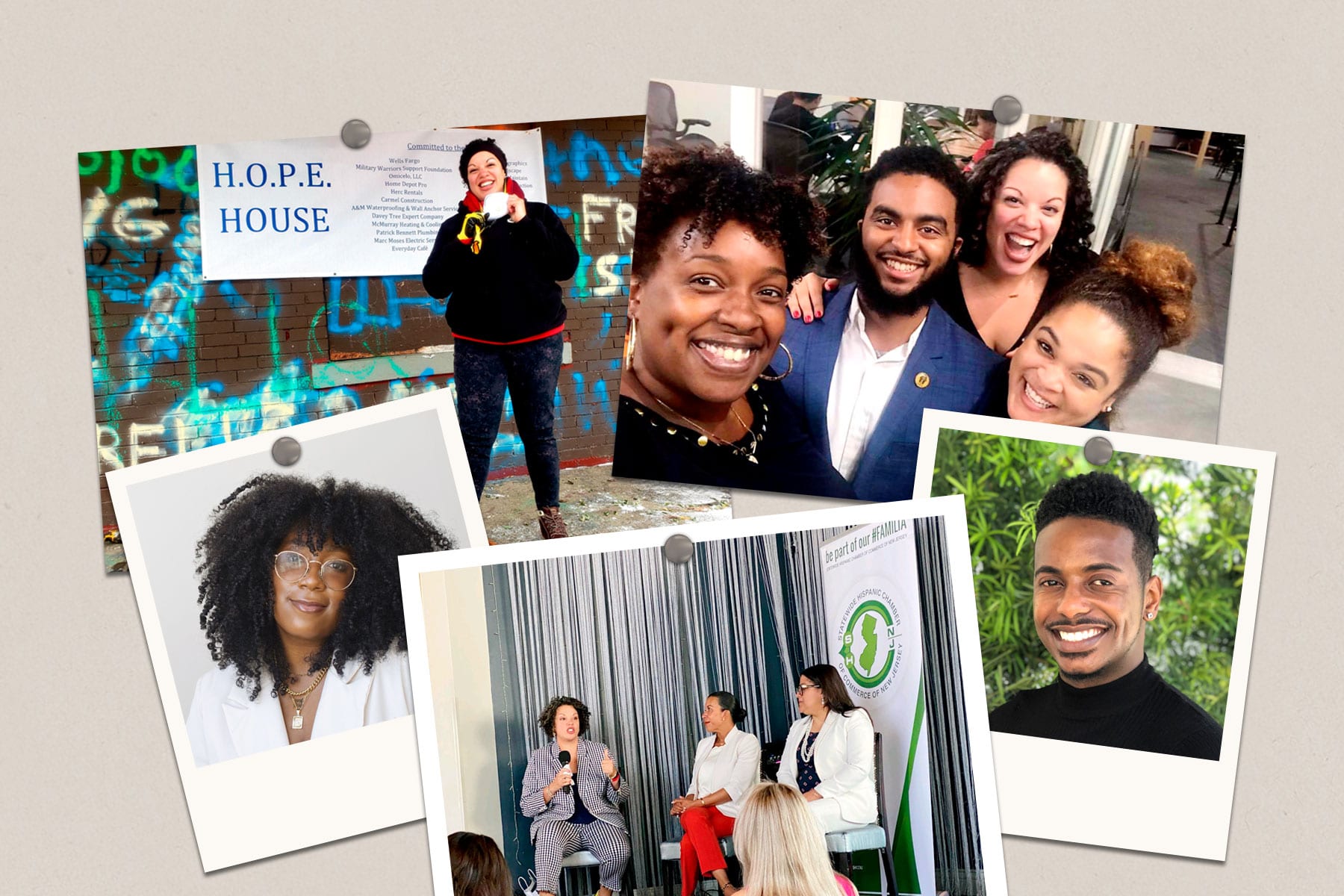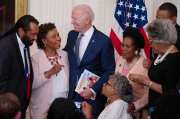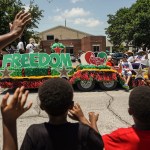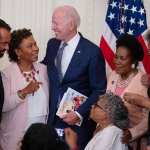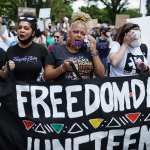For many Black Americans, July 4 never stood for independence.
“The Fourth of July, we were not free,” said Deborah Evans, the National Juneteenth Observance Foundation’s communications director. “We say that July 4, 1776, freed the country from the British. Juneteenth, June 19, 1865, completed the cycle of freedom by freeing the people.”
The holiday, celebrated on June 19, commemorates the day in 1865 when the Union Army reached Galveston, Texas, and finally announced that slavery had been abolished two years earlier.
More than twenty years ago, Evans learned about Juneteenth from a colleague at the South Shore School of Entrepreneurship. She then joined the National Juneteenth Observance Foundation, which was at the center of the holiday’s advocacy. Now that federal recognition has been achieved, the foundation is advocating for Juneteenth education in schools. Now, she said, she strives to teach her grandchildren about the history behind the holiday.
“The work is just beginning right now,” Evans said. “We have to educate people.”
We recently asked you, our readers, what Juneteenth means to you, how you learned about it, and how you feel about its federal recognition. Many of your responses echo Evans’ sentiments about continuing to educate people about the day. Here are some of your answers, lightly edited.
‘I want Black people to be seen and heard on the days where no holiday is taking place‘
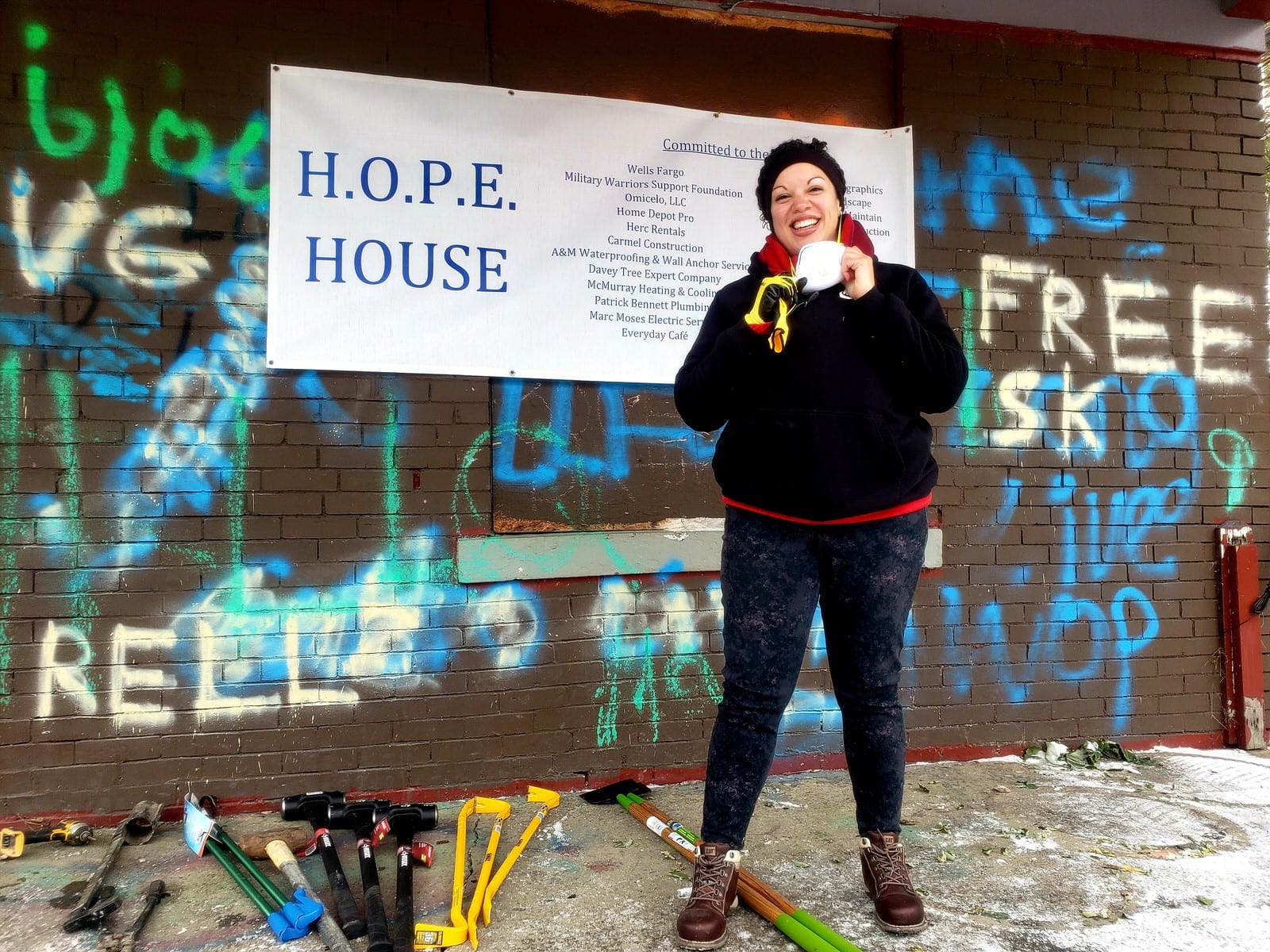
Tiffany Tavarez, 38: I never learned about it in school. I recall being in the library on my college campus doing research for a project. I was probably 19 or 20 years old. As I was perusing through the aisles, I found a massive book covered in dust. I pulled it out to discover it contained graphic photos of American lynchings throughout history. I had only seen one or two photos before, and it had rarely been referenced or brought up. Seeing photo after photo really affected me. The images became engraved in my mind. In reading some of the content, I saw the word “Juneteenth” and decided to do some research on what that was. That is how I learned about it.
The Black community cannot proudly accept economic or emotional reparations, even in the form of a federal holiday, when our elected officials seek to block critical race theory in schools. I want Black people to be seen and heard on the days where no holiday is taking place — that is when it matters most.
I celebrate Black people every day. I don’t need Juneteenth.
‘I took the time this year to learn more about my ancestors and their stories’
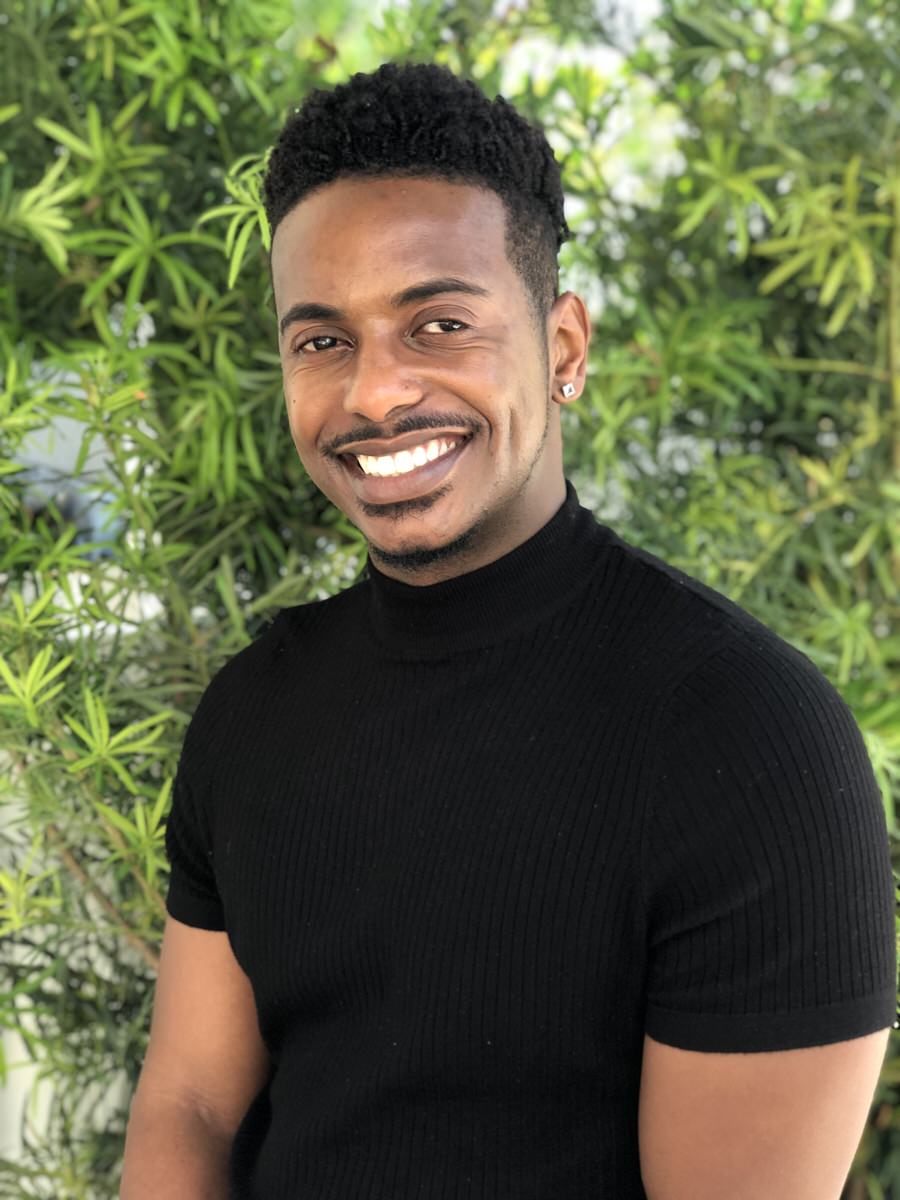
Josh Swann, 34: I’m unapologetically Black every day, which is a celebration and protest within itself. Given the fact that Juneteenth was conveniently left out of the American history classes I took from kindergarten to 12th grade and undergrad, I took the time this year to learn more about my ancestors and their stories.
I learned about Juneteenth from a friend who lives in Dallas about seven years ago, when I was 27. We were making plans to celebrate his birthday, which is a few days before Juneteenth, and he told me events were happening, so my travels to Texas were a win-win. He is also Black and explained that Juneteenth was a holiday celebrated largely in the South for many years by Black folks. Me being a northerner, I had no idea about this day of liberation, and I felt ignorant and saddened that it had been kept from me by the United States public schools for so long.
‘I have very conflicted feelings about this holiday just being another day off’
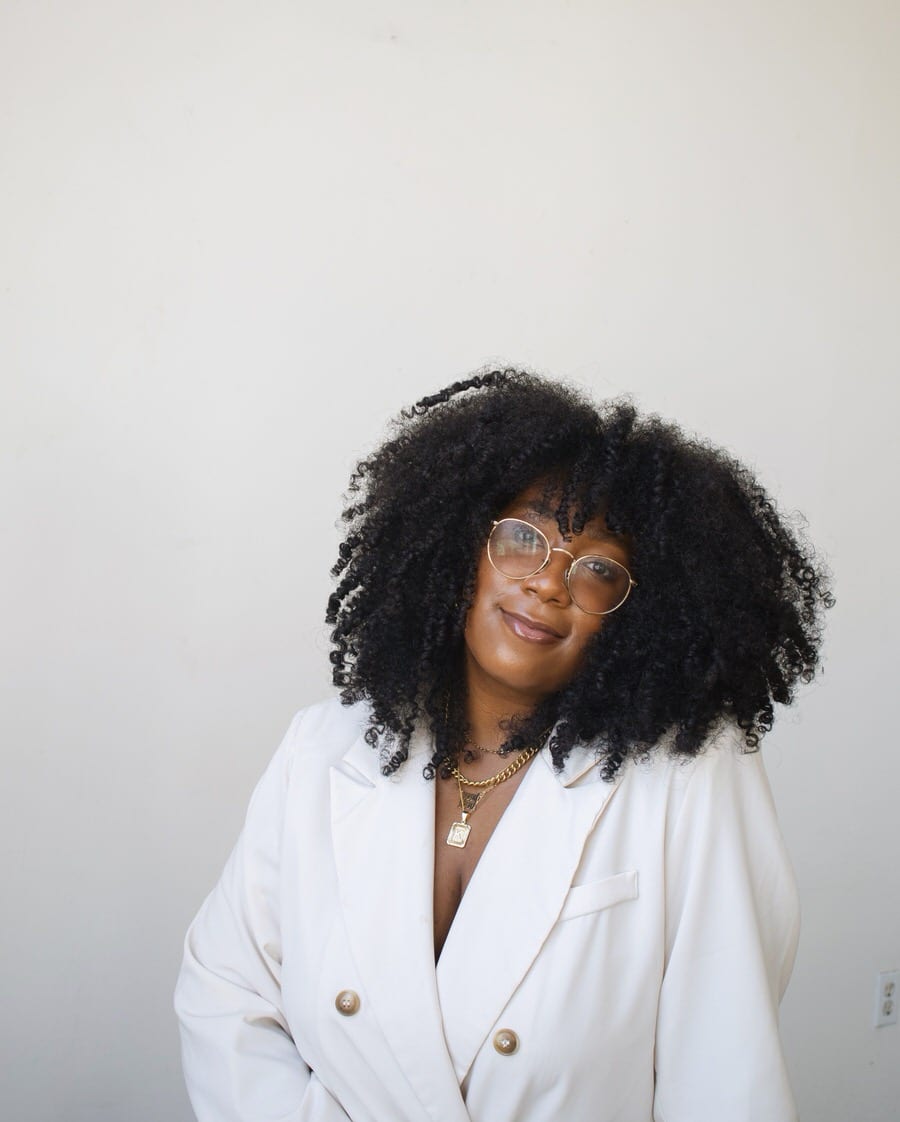
Kalah Walker, 26: I did not learn about Juneteenth until my junior year in college. My sorority, Alpha Kappa Alpha Sorority, attended an event where we helped to spread awareness and fundraise. After that, it was a lot of self-education on what exactly Juneteenth was.
I understand that it’s a win for activists who have been lobbying for this holiday declaration for decades. I also appreciate that it recognizes this holiday as this country recognizes other events in history. I have very conflicted feelings about this holiday just being another day off for some Americans.
-
Read Next:
Sa’iyda Shabazz, a writer who has written about the history of Juneteenth, said that some people are afraid that what happened to Martin Luther King Jr. Day may happen to Juneteenth now that it is a national holiday.
“With Martin Luther King day, there was this fight within the Black community to get his birthday recognized as a holiday, and now it’s become a sale holiday,” said Shabazz, who has already begun receiving emails advertising Juneteenth sales.
She said that she plans to teach her son about the holiday’s history and is looking for children’s books on the topic. She also said she hopes schools will begin including Juneteenth history for younger children.
“First there’s an awareness. Then there has to be an education,” said Steve Williams, the Juneteenth Observance Foundation’s president. “So that’s the next step.”
